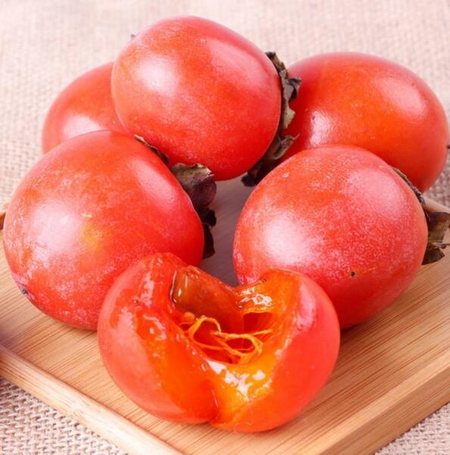Healthy diet
Notes on eating persimmon
Persimmon has a large number of organic acids, tannins and other ingredients, which are helpful for gastrointestinal digestion and appetite. Because of the astringent intestinal hemostasis function of tannin, persimmon can be used to treat hemoptysis, hematochezia, urination, dysentery and hemorrhoids bleeding. Persimmon has the function of expelling hookworm, tapeworm and nematode in intestine
Persimmon should not be eaten on an empty stomach
Persimmon can be divided into sweet persimmon and astringent persimmon. Sweet persimmon fruit can be eaten when it is mature, and astringent persimmon can only be eaten after artificial Deastringency. Persimmons are sweet, juicy, fleshy and palatable. The ancients praised them as: ” is better than gold, and it’s sweet than jade “. Although persimmons are delicious, they should not be overdone, especially when they are on an empty stomach. Because persimmons contain more tannic acid and pectin, they will form hard blocks of different sizes under the action of gastric acid when they are on an empty stomach. If these hard blocks can not reach the small intestine through the pylorus, they will stay in the stomach to form gastrodiospyros. The small gastrodiospyros is initially like the apricot nucleus, but will accumulate more and more. If the stomach persimmon stone can’t be discharged naturally, it will cause digestive tract obstruction, severe abdominal pain, vomiting and even hematemesis.

Persimmon skin should not be eaten excessively
Some people feel that eating persimmons while chewing their skin is more delicious than eating persimmons alone, so they eat them without limit. In fact, this eating method is as unscientific as eating persimmons on an empty stomach. Because most of the tannins in persimmon are concentrated in the skin. When persimmon is Deastringency, it is impossible to remove all the tannins in the skin. If the skin is eaten together, it is easier to form gastropersimmon stone, especially when the Deastringency process is not perfect, the skin contains more tannins.
Don’t overeat persimmons
Tannins in persimmons can form compounds with minerals such as calcium, zinc, magnesium and iron in food that can not be absorbed by the human body, so that these nutrients can not be used, so eating persimmons more easily leads to the lack of these minerals. And because persimmon contains more sugar, people eat persimmon more than eating the same number of apples and pears, which will affect appetite and reduce the intake of dinner. In addition, deficiency of body, dyspepsia, exogenous cold, diarrhea and postpartum should not be eaten.
Click here to learn more about Healthy Diet.


